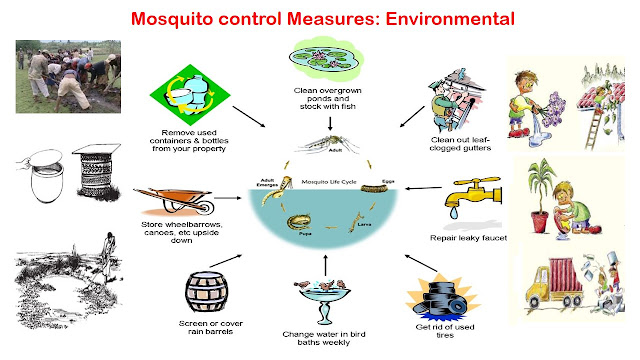ORS : A boon in dehydration
What is ORS?
Oral re-hydration salts: It is a glucose-electrolyte formula given by WHO/UNICEF, used for correction of acute diarrhea due to all causes and dehydration in all age groups with aim to reduce mortality. It is available in powder form in sachets/ ready-made solution or it can be easily made at home.
How it works?
The combination of electrolytes and sugar together stimulates water and electrolyte absorption from the gut and hence capable of correcting water and electrolyte deficit in conditions such as diarrhea and vomiting.
Reasons to celebrate ORS day?
ORS Day is celebrated every year on 29th July:
- To spread awareness about the importance of Oral Rehydration Salts (ORS) as a low cost method of health intervention.
- Among infants and young children, acute diarrhoeal diseases are one of the leading causes of mortality in many developing countries.
- Dehydration particularly affects infants, children and old people.
- Diarrhea normally lasts for several days, and leaves the body without water and salts which are necessary for the survival. Most of the people who die from diarrhea actually die from severe dehydration and fluid loss from the body.
What are types of ORS?
- Standard WHO ORS
- Reduced osmolarity ORS
- Super ORS
- Rice flour based ORS
- ReSoMal
The composition of Reduced osmolarity ORS?
Since January 2004, new ORS formulation (Reduced osmolarity ) is recommended by WHO and UNICEF.
How to prepare WHO ORS available in powder form?
- Put the contents of the ORS packet in a properly clean container.
- First check the packet for directions and add the amount of clean water as indicated.
- Too little water con make the diarrhoea worse.
- Use water only for adding. Do not add ORS to milk, soup, fruit juice or any soft drinks. Do not add sugar.
- Stir very well, and feed it to the child from a clean cup. Do not use a bottle.
- ORS should be kept covered & should be used within 24 hours to avoid the risk of bacterial contamination.
How to prepare ORS at home?
If ORS packets are not available, ORS can be prepared at home with the help of water, sugar & salt:
- Clean Water - 1 litre - 5 cupful (each cup about 200 ml.)
- Sugar - Six level teaspoons (1 teaspoon = 5 grams)
- Salt - Half level teaspoon
- Stir the mixture till the sugar dissolves
This solution is adequate in most of the cases and is very effective for re-hydration but be very careful to mix the correct amounts.
Too much sugar can make the diarrhea worse and too much salt can be extremely harmful to the child.
How much ORS drink can be given?
- Encouragement of the child to drink as much as possible.
- A child less then 2 years of age needs at least 1/4 to 1/2 of a large (250-millilitre) cup of the ORS solution after each watery stool. Give 1-2 teaspoon every 2-3 minutes.
- A child of age 2 years or older needs at least 1/2 to 1 whole large (250-millilitre) cup of the ORS drink after each watery stool.
- In case the child vomits- wait for 10 minutes. Give a teaspoonful every 2-3 minutes.
- If the child is on breast feeding, continue it along with ORS.
- In case of diarrhea give zinc tablet also along with ORS. Zinc tablet to children less than 6 months, 10 mg/day & to children more than 6 months, 20 mg/day given.
- Adults may take as much as they like.
- If a child wants to take more ORS than estimated amount and does not vomit, there is no harm in feeding more.
- If a child refuses to drink the required ORS amount and signs of dehydration have disappeared, then rehydration is completed.
Guidelines for ORT (Oral Re-hydration Therapy) during 1st 4 hours:
References:
- Park K. Park's textbook of preventive and social medicine. 25th. Jabalpur, India: M/S Banarsidas Bhanot. 2019.
- WHO, UNICEF (2004), Clinical management of acute diarrhoea, WHO/UNICEF Joint statement
- WHO (2005), The treatment of diarrhoea, a manual for physicians and other senior health workers, Deprtment of Child and Adolescent health and Development, WHO.
- Bhattacharya SK, Dutta P, Dutta D, Chakraborti MK. Super ORS.
- Sabchareon A, Chongsuphajaisiddhi T, Kittikoon P, Chanthavanich P. Rice-powder salt solution in the treatment of acute diarrhea in young children. Southeast Asian J Trop Med Public Health. 1992;23(3):427-432.
- IDCF 2015 Intensified Diarrhoea Control Fortnight 27th July- 8th August, 2015, TOOL KIT, National Health Mission.
- https://rehydrate.org/ors/ort.htm
- https://www.cdc.gov/cholera/treatment/rehydration-therapy.htm
- https://www.unicef.org/sowc96/joral.htm
- https://apps.who.int/iris/bitstream/handle/10665/69227/WHO_FCH_CAH_06.1.pdf;jsessionid=386F59E6FDDFB2EF303D3774338ACBBA?sequence=1
- https://www.nhp.gov.in/ors-day_pg#:~:text=ORS%20Day%20is%20celebrated%20every,children%20in%20many%20developing%20countries.
- https://pubmed.ncbi.nlm.nih.gov/8855579/









This comment has been removed by the author.
ReplyDeleteGoing for jogging and running for the daily exercises is the best way to keep the fresh, as I go daily so I got dehydrated, that's why I need the electrolytes in water that are very useful to keep me hydrated.
ReplyDeleteThis article provided me with a wealth of information about rehydration drink.The article is both educational and helpful. Thank you for providing this information. Keep up the good work.
ReplyDeleteGreat article. It's true! Using ORS is indeed one of the best ways in which you can treat a dehydrated person. Talking of Dehydration , it is quite serious, and needs to be taken seriously. If not, then it can give rise to various complications.
ReplyDelete